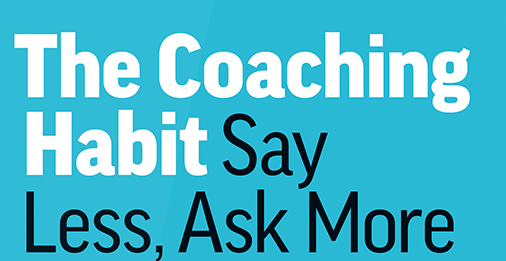The Power of Questions
This week was a shorter week again, back in the office on Wednesday after a long weekend out in Las Vegas. On Wednesday I was introduced to a new member from one of our supplier teams, who is going to help lead on the adoption of Agile ways of working on our account. I really enjoyed our initial discussion, as this particular individual asked a number of open, honest and challenging questions with regards to where we are on our journey, what organisational constraints we faced and how we’d prioritised particular areas so far. It was a great example for me of the impact someone in a coaching or consultancy position can have simply by asking the right questions, as opposed to just blindly accepting what the client asks for. My view on our organisation trying to adopt a framework agnostic way of working where all frameworks have elements that are relevant seemed to resonate well so looking forward to some more fruitful discussion in the coming weeks.
The Coaching Habit
In relation to this, after finishing Escaping The Build Trap I’ve recently picked up a new book called The Coaching Habit.

I made a note of it close to maybe 18 months ago when Don Eitel (I think…sorry if it was someone else!) mentioned it to me in the Modern Agile Slack group. I’m already regretting not starting it sooner, in particular as it’s a book not just relevant to ‘agilists’ but I would say anyone who is in a management role in an organisation.
Training
This week we ran a training session for a group of people within our Assurance Transformation team. It was the first session I myself had run after a six-week period of no training, which is the longest gap I’ve had in the last six months. Along with the time off, I definitely noticed an impact to my delivery, as I didn’t quite feel like I got into the ‘flow’ of how things usually go. Nevertheless the feedback was positive however there is an important learning for myself around keeping fresh and maybe not having quite as long a gap between training sessions next time.
And the anti-pattern award goes to…
In the training, one of the attendees explained around how he and his team(s) use hardening sprints within their delivery. For those of you that aren’t aware, a hardening sprint is essentially a sprint where a team will focus on bug fixing, technical debt, integration testing, performance testing, security testing, etc. —in most cases it being everything that needs to be done before software can actually be released. I was first introduced to it once I joined PwC when someone was explaining how previous successful(!) Agile projects had been run. For me it is my favourite anti-pattern in the sense of it being a clear indication of not remaining true to the principles set out in the manifesto (sustainable pace anyone?).
If you are using hardening sprints, then it’s clear that your definition of done is most likely not very robust, that the work you are completing is not potentially shippable and unfortunately that you have compromised on quality. The irony in articles titled ‘Optimize Your Hardening Sprint for a Quality Advantage’is one that does make me chuckle.
Next Week
Next week I start the week working with a team looking at that million-pound question — “None of our stuff is moving on the board, can you help us fix it?”. I’m hoping to get to the second day of the Pluralsight:Live event on Tuesday in particular with a session on DevSecOps. Then the rest of the week will be focused on some one-to-one coaching conversations.
